These are the 4 products dermatologists say they’d never use
From chemical-based sunscreens to harsh exfoliants, these are the beauty products you'll never find on a dermatologist's top shelf.
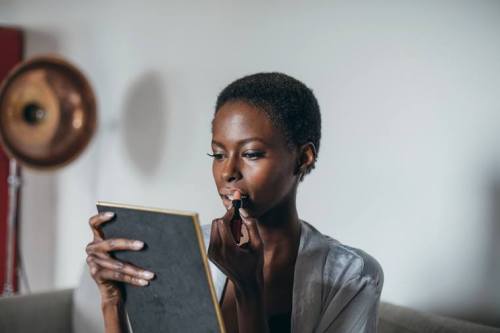
When it comes to what’s best for your skin, dermatologists and aestheticians usually have the final word—they went to school to become full-on skin-care experts, after all. And just like a nutritionist isn’t pointing you towards a kale salad while secretly enjoying Big Macs, you can bet that these complexion professionals have their own beauty routines down to a science.
“I’m very particular about my own skin, being that I do need to set an example for proper skin care and nutrition,” admits Erin Madigan-Fleck, an Atlanta-based holistic aesthetician. The resulting regimen is practically a dermis do’s and don’ts list. “I look for product lines that aren’t complicated but have antioxidants, critical nutrients for the skin, and any type of supportive oils—and aren’t synthetically derived,” she says. Among the bottles, tubes, and sprays she steers clear of? Ones that are full of fillers, are super harsh, or have novel-length ingredient lists.
Madigan-Fleck isn’t alone in her pursuit of chemical-free beauty: When I talked to skin-care pros about their prescriptions for a radiant complexion, the same rules kept popping up. The next time you’re restocking your top shelf, let their expert experience guide you.
Scroll down for the 4 products skin-care professionals have nixed from their beauty routines.
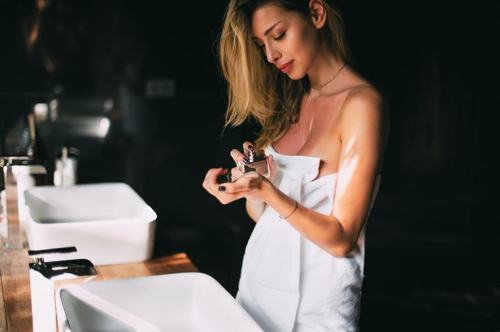
1. Anything with added fragrance
If there were a mob boss in the beauty product world, it’d be fragrance. Largely unregulated by the FDA, “fragrance” and “parfum” are sketchy umbrella terms that any number of scary synthetic or allergy-provoking chemicals could hide beneath. This is why fragrance falls on the Dirty Dozen list of things to avoid in skin care—and why dermatologists keep their distance.
“I would never use a product with added fragrances,” says New York-based dermatologist Natalie Moulton-Levy, MD. “Heavily scented products often irritate the skin and can contribute to allergic reactions in some cases.”
Madigan-Fleck adds that fragrance can mess with the skin’s protective barrier function (which locks in moisture and nutrients while blocking irritants). “If there’s any fragrance in a product at all, it’d have to be natural essential oils for me to use it,” she says.
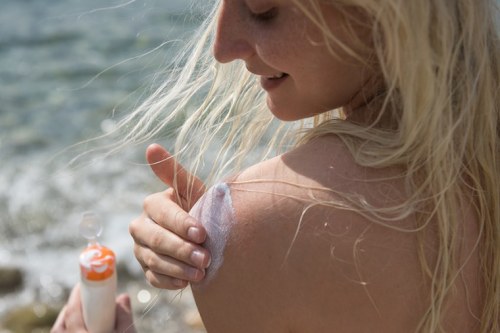
2. The wrong sunscreens
“Wearing SPF every single day of the year is key to keeping your skin in good health,” says Dr. Moulton-Levy. But not just any SPF will do: “I would never use a sunscreen with an SPF below 30 or without both UVA- and UVB-blocking agents.” Do so, and you risk letting in the sun’s harmful rays. (Keep in mind, too, that many sunscreens don’t live up to their lofty SPF-claims, so it’s best to go with an even higher SPF than you think you need.)
This Parisian Skincare Brand Is Launching in the United States for the First Time—Here’s What a Derm Wants You to Know

We’re Calling It: Cleansing Balms Are the Face Wash of the Future—Here Are 3 to Add to Your Cart

This Is the One Product That Scarlett Johansson Always Keeps in Her Purse and on Her Bedside Table

Holistic derms also stick to mineral sunscreens—AKA those that use titanium dioxide and/or zinc. “My sunscreen never has a chemical base,” says Madigan-Fleck. If you need to restock, here are our tried-and-tested picks for the 11 best natural sunscreens.
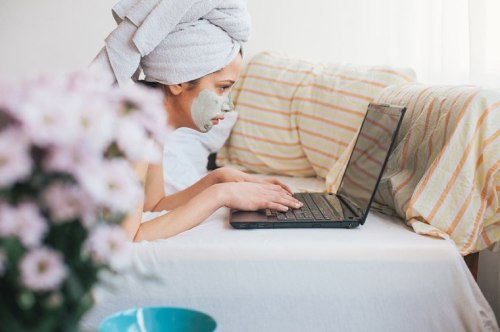
3. Harsh exfoliators
Remember when a certain popular drugstore face scrub got sued for damaging skin? Yeah, this and similar products are definitely not dermatologist-recommended for removing that layer of acne-causing gunk.
“I would never use any harsh exfoliators,” says Dr. Moulton-Levy. “My patients often come in saying they’re using abrasive scrubs, but rough physical exfoliation can strip the skin, leading to dryness and irritation.” She adds that it can also exacerbate conditions like eczema, rosacea, and acne—so look for more gentle ways to keep those pores clear.
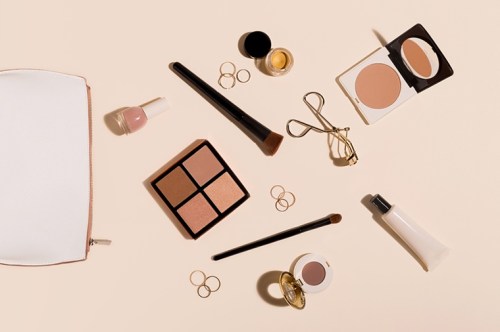
4. Extended-wear makeup
Have you ever wondered what makes long-wear lipsticks and shadows cling to your skin for so long? The answer isn’t pretty. “These products are designed with silicone polymers and dimethicones to help the wear, which isn’t healthy for your skin on a regular basis,” Madigan-Fleck says. In fact, they could be the culprit behind sudden breakouts or stubborn acne.
Plus, long-lasting cosmetics encourage you to skip important steps in your skin-care regimen. “Mascara that stays on for, like, 3 days or foundation you can sleep in or wear for 24 hours are shortcuts to grooming skills that are very important,” says Madigan-Fleck. “Sleeping with your makeup on is really not a good idea.”
Originally posted July 17, 2017, updated July 24, 2018.
As for what you should put on? Here’s the difference between moisturizers, balms, serums, oils, and more. And don’t let all this info stress you out—your beauty routine should definitely be a rejuvenating experience.
Sign Up for Our Daily Newsletter
Get all the latest in wellness, trends, food, fitness, beauty, and more delivered right to your inbox.
Got it, you've been added to our email list.







